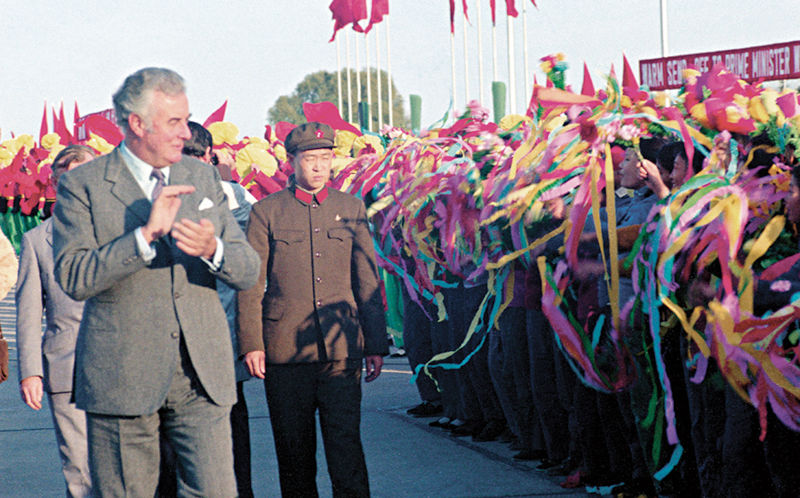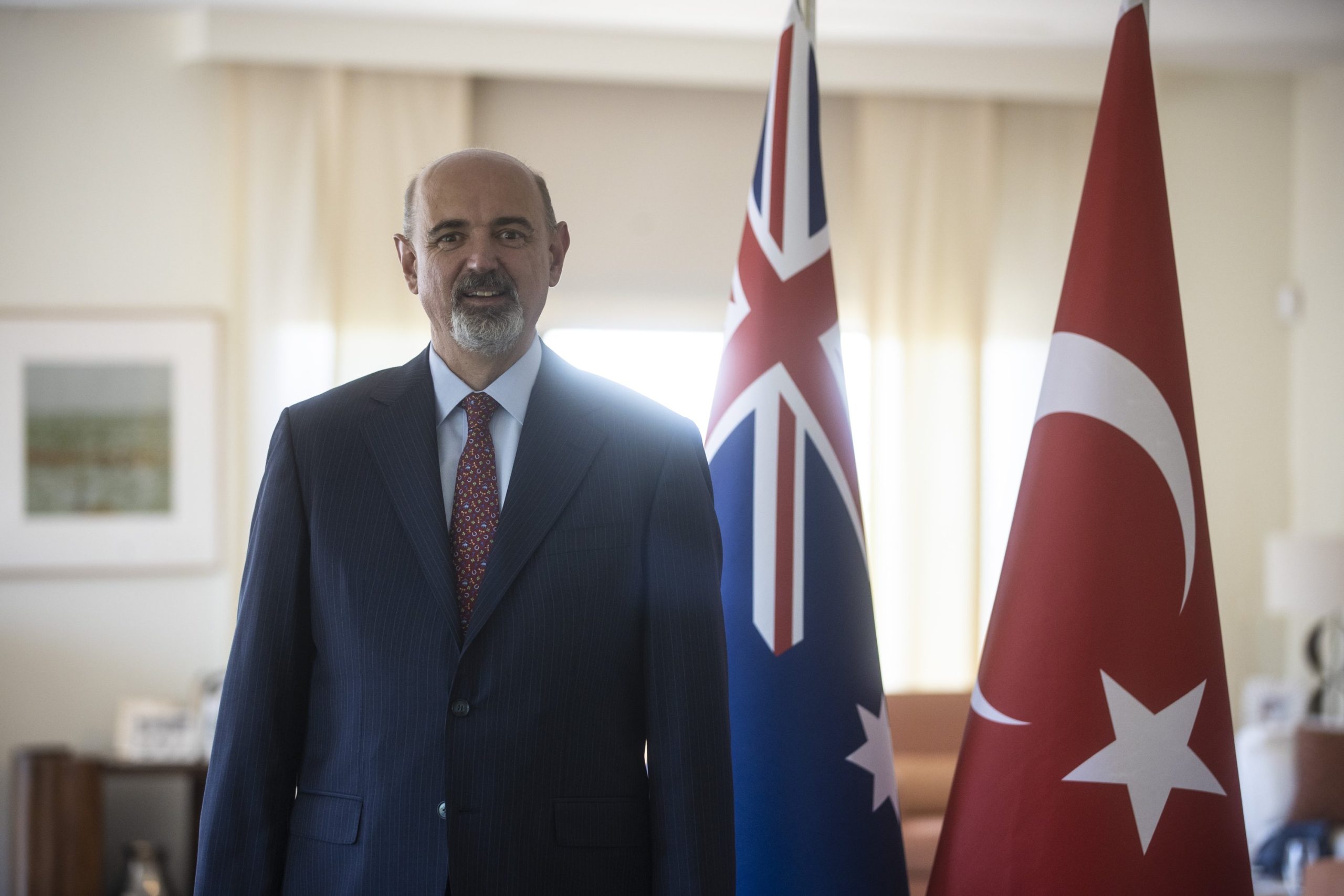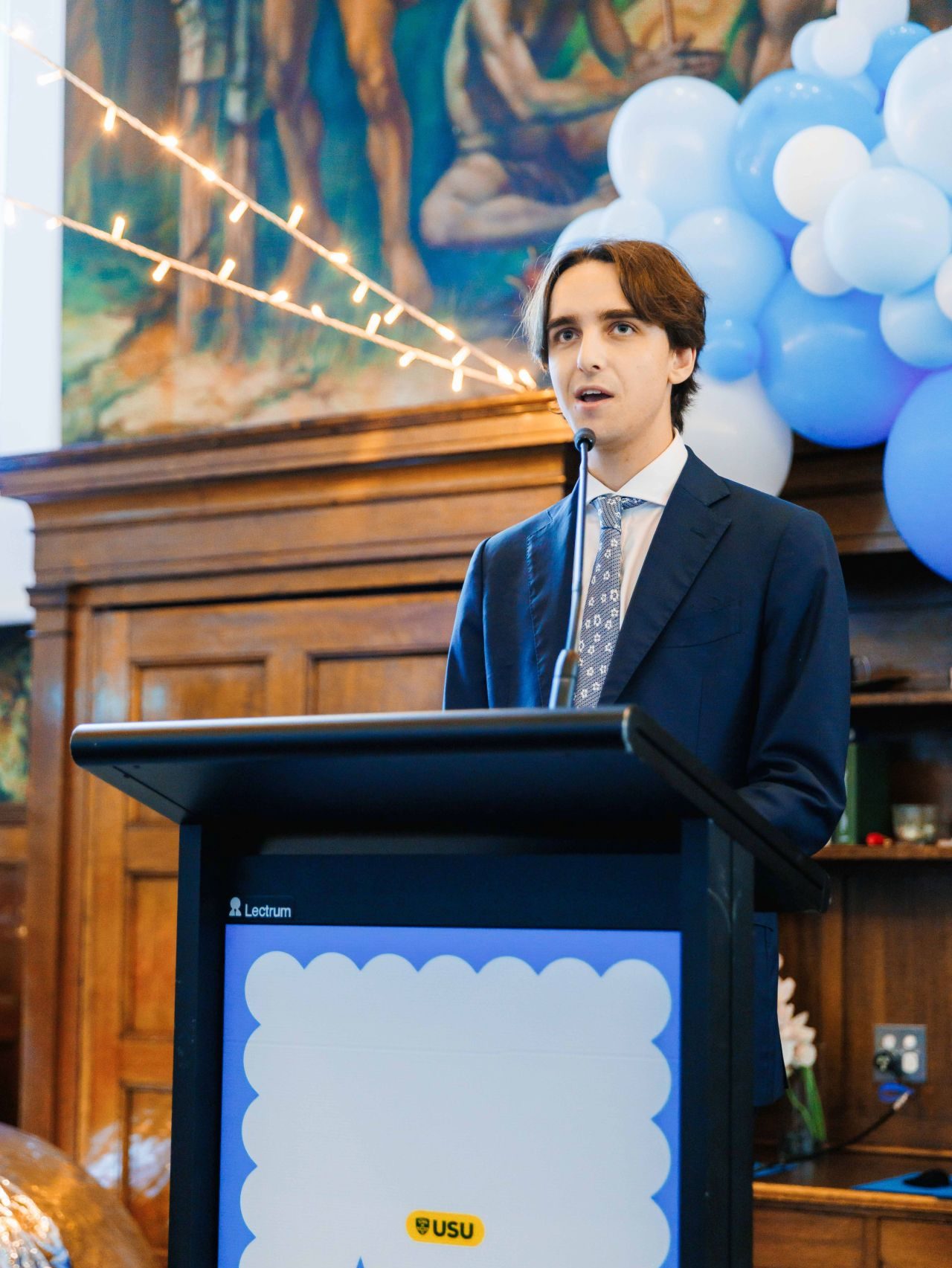The media has drawn strong parallels between Prime Minister Anthony Albanese’s July 2025 visit to China and that of Gough Whitlam, who, as Leader of the Opposition, famously visited China in 1971 “to open the door to relations with China,” as reported by The Sydney Morning Herald. Journalist Paul Sakkal referred to Whitlam as a “Labor icon.”
“At the time, that was a controversial decision to recognise the People’s Republic of China,” the Prime Minister said. “I have the sense of history following in the footsteps of … Gough Whitlam … We are literally standing on history.”
In July 1971, Whitlam led a bold and historic delegation to the People’s Republic of China. At a time when the Australian government, under Prime Minister William McMahon, refused to establish diplomatic ties with China, Whitlam’s initiative marked a dramatic shift in foreign policy and demonstrated his commitment to regional engagement and internationalism.
The Rt Hon Sir William (Billy) McMahon GCMG CH, who attended St Paul’s College from 1927 to 1931, served as Prime Minister from 1971 to 1972 before being defeated by Whitlam, a fellow Pauline who studied at the College from 1935 to 1942. Whitlam served as Prime Minister until his dismissal by the Governor-General on 11 November 1975. For more about these and other Paulines who have served in federal politics, click HERE.
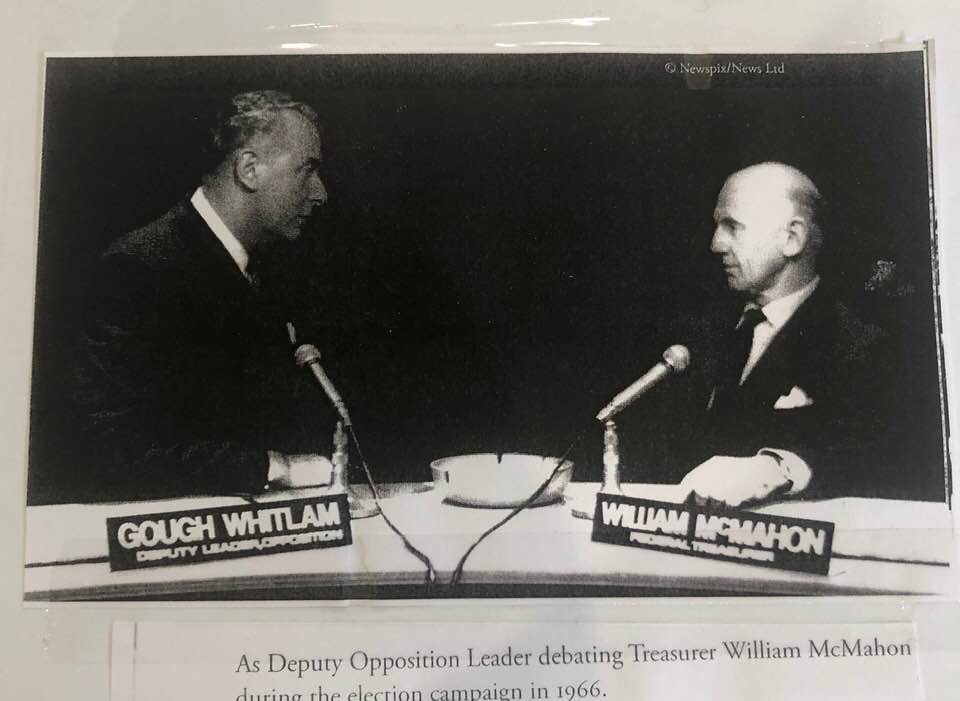
In 1966 two Pauline political rivals battle it out on TV – Gough Whitlam, Deputy Leader of the Opposition and Billy McMahon, Federal Treasurer
Whitlam’s delegation included Labor parliamentarians, advisers, and journalists. The visit was politically risky, occurring during the Cold War when China was still viewed with suspicion by many in the West. His decision was vindicated when, coincidentally, US National Security Adviser Henry Kissinger arrived in Beijing just as Whitlam was leaving, secretly laying the groundwork for President Nixon’s landmark visit in 1972.
During the trip, Whitlam met with Premier Zhou Enlai in the Great Hall of the People. Originally intended to be a private meeting, it was transformed into a public diplomatic event when Zhou invited journalists to witness the occasion—underscoring China’s desire to build friendly relations with Australia and highlighting Whitlam’s role in reshaping perceptions of China.
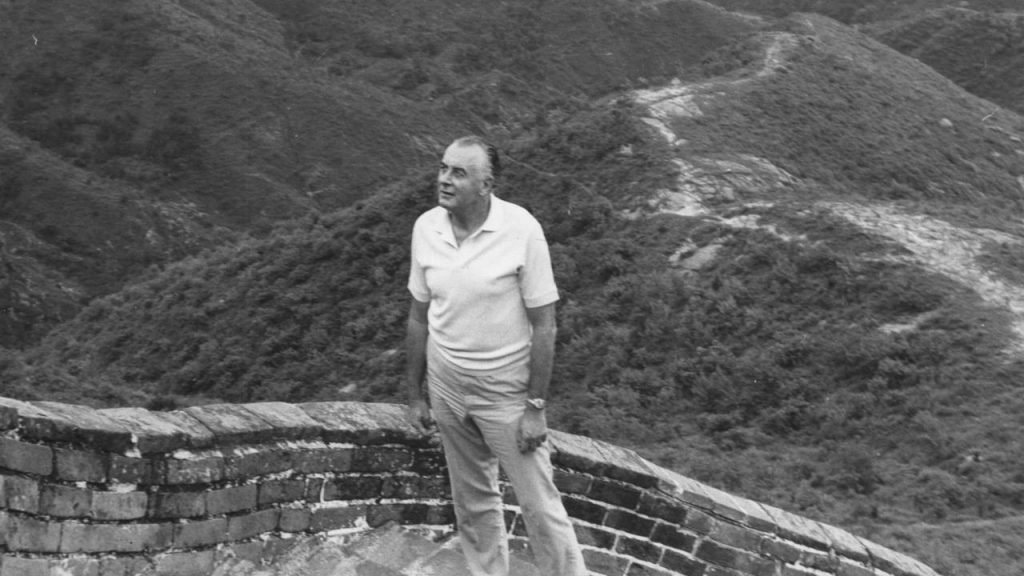
One of the most memorable moments of the visit was Whitlam’s journey to the Great Wall of China. Photographs from the trip show him and members of the delegation exploring the ancient structure, symbolizing not only cultural exchange but also the bridging of a diplomatic divide that had long separated Australia and China.
Whitlam’s 1971 visit laid the foundation for the formal establishment of diplomatic relations between Australia and China in December 1972, just weeks after he became Prime Minister. It was a turning point that redefined Australia’s place in the region and opened the door to a mature and multifaceted relationship with China.
Continuing the Legacy in 2025
In 2025, St Paul’s College continues to value Australia’s engagement with China, maintaining a strong cohort of international students from the region. Of the ten Chinese students currently residing at Paul’s, their fields of study include a JD, PhD, Doctor of Science, and Masters degrees in Finance, Education, and Commerce, as well as a Bachelor of Advanced Computing.
These students are here not only to pursue academic excellence but also to continue the building of “friendly bridges” that their predecessor once began. As one student shared:
“I’d love to see China and Australia continue to trade, cooperate, and keep building bridges instead of barriers.”
Their presence is a living testament to the enduring value of international engagement and mutual respect—echoing the vision Whitlam set in motion on the Great Wall over fifty years ago.
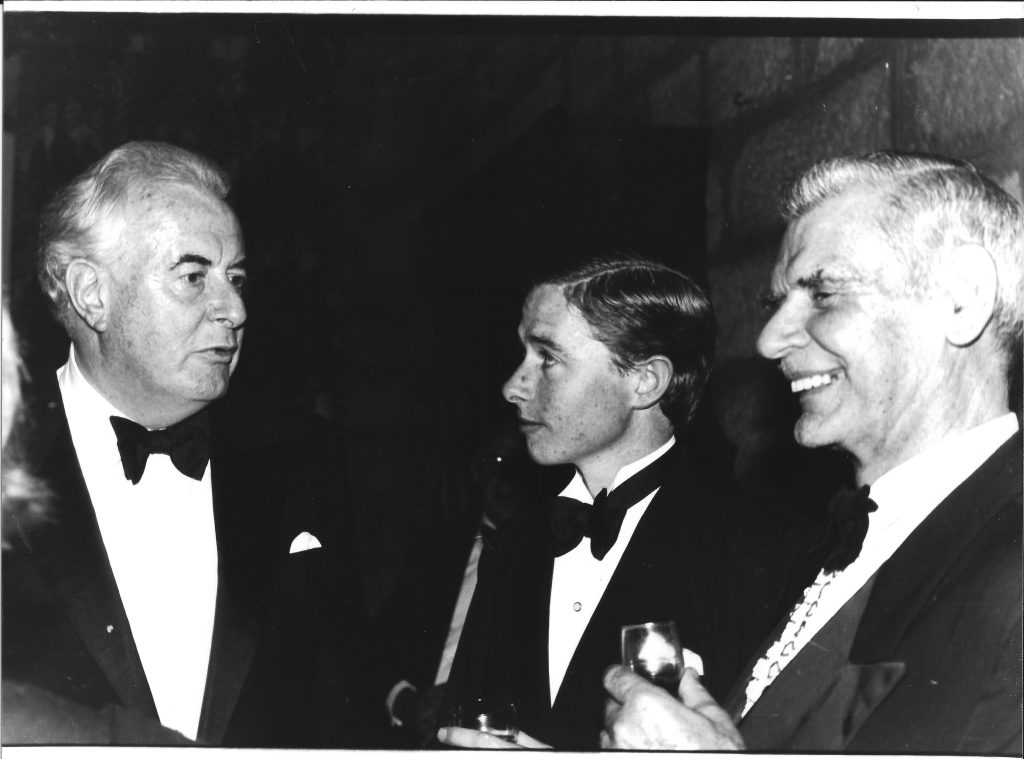
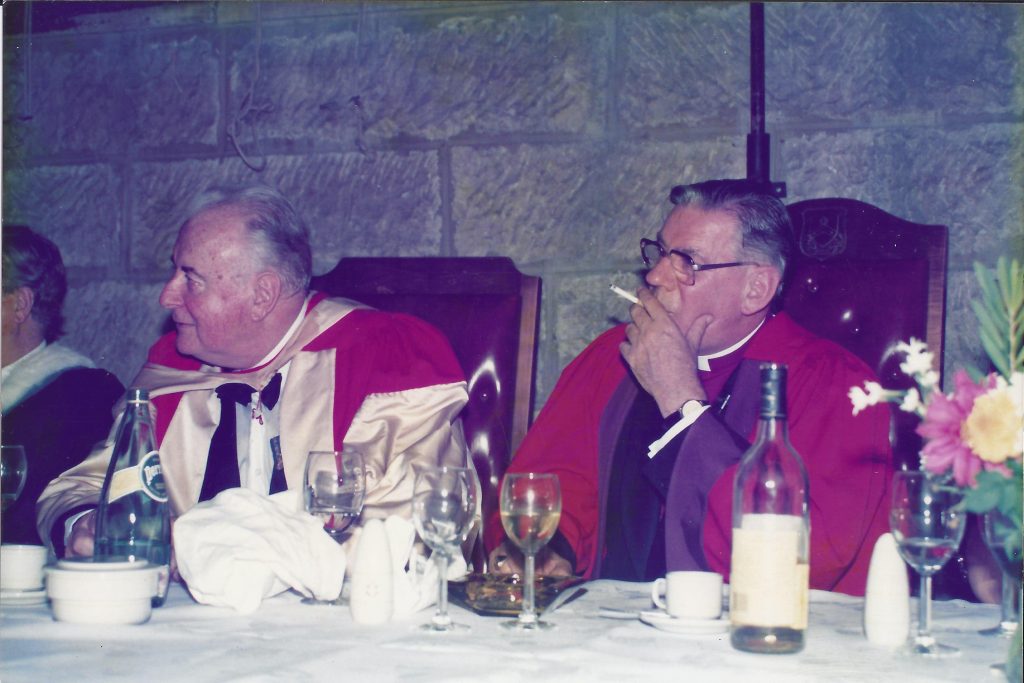
[Gough Whitlam visited the College in 1973, 1982 (pictured left) and 1989 (right)]
Sources:
Sources:
Picture credits: St Paul’s College Archives, The Australian

